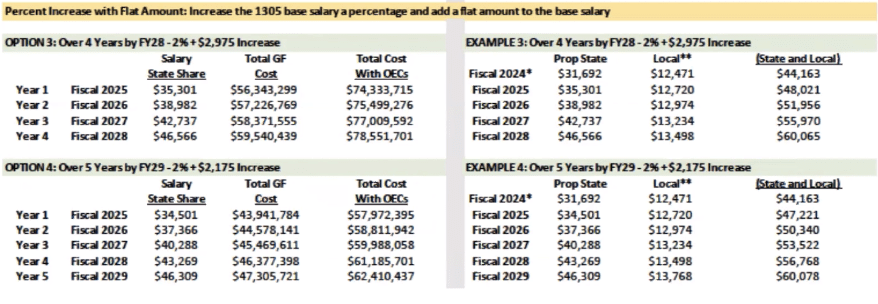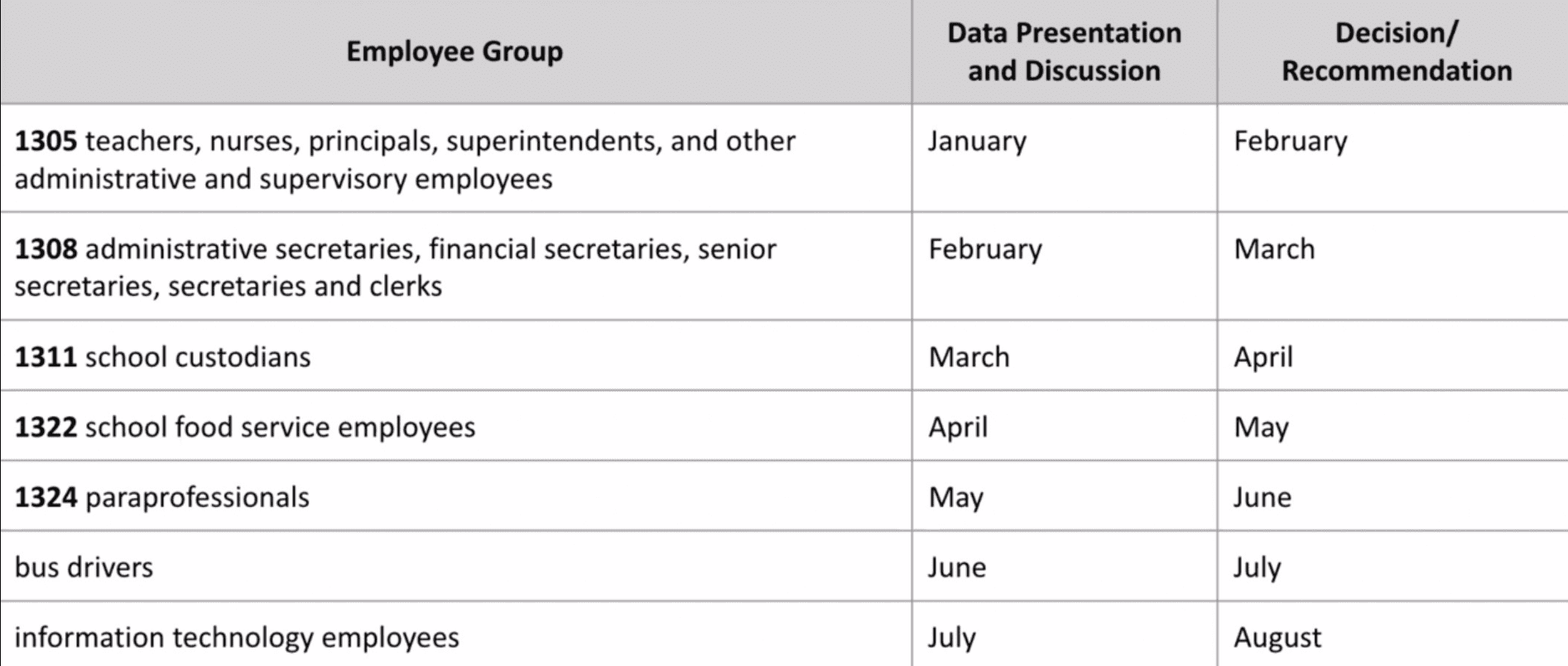Plans to recommend how the state will significantly hike salaries of teachers as well as school administrators and nurses stalled Monday night amid concerns about the state budget and the timeline of raises.
The 15-person Public Education Compensation Committee debating the issue was created this year to make recommendations on Delaware educator compensation.
Officials hope raises will both address the teacher shortage and create salaries to compete with other states in the region, including Maryland, which plans to bring a teacher’s base salary to $60,000 by 2027.
The committee was considering a recommendation that would provide a 2% increase and a flat dollar increase to the base salary for teachers, nurses and administrators each year until it reaches $60,000.
Sen. Laura Sturgeon, D-Hockessin and chair of the Senate Education Committee, said she couldn’t vote for the plan because there’s no formal timeline attached.
She called the committee out for making excuses about delaying salary raises.
RELATED STORY: Carney’s education raises cause stir in compensation committee
Sturgeon said some of the members seem to have the mentality that it’s OK to be years behind Maryland just because Maryland started first.
“While in the meantime, while this longer period of time is being waited for, our students are the ones who are suffering because they have substitute teachers in their classes, because they’re being taught by a computer with a teacher in another room and an aide walking around babysitting them,” she said.
A former teacher, Sturgeon said she was told for 25 years to do what’s best for students.
That’s a hypocritical message now as students and their academic success are the victims of the teacher shortage, yet the committee is fine waiting many years to get to the $60,000 base salary, she said.
“Let’s keep in mind that every year we delay in being regionally competitive is another year that our students are negatively impacted, and that is not something I can support,” she said.
Sturgeon also took offense to several committee members who were trying to determine how the salary increases would work with the state budget.
“This is a recommendation to make us regionally competitive,” Sturgeon said. “That’s what the PECC has been asked to do. Not to figure out how to pay for it. That is the job of the Joint Finance Committee and it is the job of the governor when he puts out his governor’s recommended budget.”
By conflating those responsibilities, she said, the committee will be pushed into making a lesser recommendation than what First State students deserve and what teachers need.
“It’s not just about what the governor, what the state and the Joint Finance Committee can do, it’s also about what the various school districts can do in that time period,” said Cerron Cade, director of the Office of Management and Budget.
With the present pay scale, the state is responsible for 70% of a school employee’s salary, while the local districts have a 30% share.
“So I can see if it’s 100% on the state, but it’s not,” Cade said. “We can set a goal, but if 19 other school districts can’t get there, it’s not just on the state to figure out how or what we can afford.”
If the pay hike is rolled out over four years, the state would add a $2,975 flat dollar increase to the base salaries each year until Fiscal Year 2028. Under a five-year plan, that number would drop to $2,175.
Chuck Longfellow, chief financial officer at Christina School District, said that if the plan was adopted on a shorter timeline, like Sturgeon is calling for, the flat dollar increase from the state would need to be much more.
“I agree that it is up to JFC and the governor, but I also want to make sure that this plan is successful,” said Rep. Kim Williams, D-Marshallton and chair of the House Education Committee. “And if we were to roll this out in two years, I don’t know what our funds will be, so I want to make sure it’s successful.”
Cade was adamant that he could not vote for any recommendation that would increase the state share of paying teacher salaries.
The group agreed to revisit the recommendation at its next meeting on March 13 at 4:30 p.m.
That could throw off the schedule of the committee, which decided in January to adopt a breakdown of jobs they intend to focus on through August:
To watch the committee’s March 13 meeting, click here.


Raised in Doylestown, Pennsylvania, Jarek earned a B.A. in journalism and a B.A. in political science from Temple University in 2021. After running CNN’s Michael Smerconish’s YouTube channel, Jarek became a reporter for the Bucks County Herald before joining Delaware LIVE News.
Jarek can be reached by email at [email protected] or by phone at (215) 450-9982. Follow him on Twitter @jarekrutz and on LinkedIn
Share this Post













